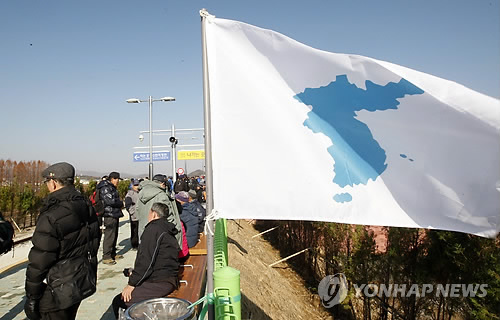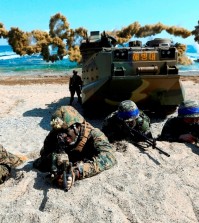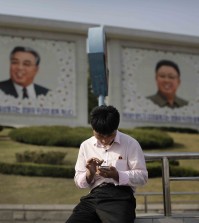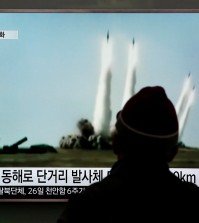- California Assembly OKs highest minimum wage in nation
- S. Korea unveils first graphic cigarette warnings
- US joins with South Korea, Japan in bid to deter North Korea
- LPGA golfer Chun In-gee finally back in action
- S. Korea won’t be top seed in final World Cup qualification round
- US men’s soccer misses 2nd straight Olympics
- US back on track in qualifying with 4-0 win over Guatemala
- High-intensity workout injuries spawn cottage industry
- CDC expands range of Zika mosquitoes into parts of Northeast
- Who knew? ‘The Walking Dead’ is helping families connect
4 out of 10 South Koreans unwilling to shoulder unification cost: poll

Four out of 10 South Koreans are turning their backs when it comes to sharing the
economic burden of potential unification with North Korea, according to a poll.
(Yonhap) — Four out of 10 South Koreans are unwilling to shoulder the economic burden of potential unification with North Korea, a poll showed Wednesday.
The survey of 1,001 people nationwide found that 44.3 percent of the respondents said they have no desire to pay a dime while 31.9 percent said they are willing to pay less than 50,000 won (US$48) per year as costs of unification.
It also showed that 11.7 percent said they are willing to pay between 50,000 won and 100,000 won per year as costs of unification. Only 1.2 percent said they are willing to pay more than 1 million won per year.
The poll, commissioned by a research institute of Seoul National University, also found that 45.8 percent said they support unification between the two rival Koreas, though there is no need to hurry for unification.
The survey results underscore lukewarm support among South Koreans for unification with North Korea.
A state-run think tank has estimated that the initial costs for the integration of the two Koreas could range from 55 trillion won to 249 trillion won. The estimate, which is projected to cover the first year of integration, was based on the assumption that the two neighbors could be unified two decades from now, according to the Korea Institute for National Unification.
South Korea said unification would provide the Korean people with a springboard to prosperity by marrying South Korea’s capital and technology with North Korea’s rich natural resources.
Meanwhile, North Korea has long suspected that Seoul could be plotting to absorb Pyongyang.
The two Koreas still technically remain in a state of war since the 1950-53 Korean War ended in a truce, not a peace treaty.
Hankook Research, a local polling firm, conducted the survey between Nov. 28 and Dec. 16, and the survey has a margin of error of plus or minus 3.1 percentage points. The survey results are included in a recent policy report submitted to the unification ministry by Seoul National University.
















